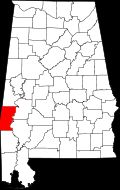Seven people join the Mount Pisgah Baptist Church of Choctaw County, Alabama. All are from one family, and their entry into church membership is a microcosm of the reasons underlying the warfare between South and North.
The family is the Bloxom family. Three white members join Mount Pisgah today: Albert Bloxom, wife Amanda, and sister Lyzia Bloxom. Each joins the congregation upon their own free will.
Four other family members, however, have no choice in the matter. Alex, Orris, Mary and Louisa are African slaves, the property of Jasper Bloxom. Today these four black members of the Bloxom family join a racially integrated congregation. No photos or sketches of the four exist; church records barely mention them. Their white “family” is only concerned that they work hard and create wealth for their master and his spouse and (white) children. The spiritual well-being of black Bloxom family members is secondary to their role as slave laborers.
Throughout the South, church membership of African slaves is determined by their white masters. In some instances, the master dictates church membership, and in other instances, slaveholders must grant permission for their chattel to join a church. Regardless, many Baptist churches of the antebellum and Civil War South are integrated not because African slaves wish it to be so, but because of the will of some slaveholders. And integration has its limits: within church walls, blacks sit apart from white members and typically have little voice, in any, in church affairs.
Over African slavery the Civil War is being fought. Jasper’s brother Leslie fights in the Confederate Army, determined to keep his family’s slaves in servitude. For now in Choctaw County, Alabama, slaveholders continue to exercise both physical and spiritual (at least in terms of church membership) control over their slaves.
Today might seem like a normal day in the early Civil War life of home front Baptists in Alabama. Yet when the war ends and African slavery is no more, the black members of the Bloxom exalt in their newfound freedom, even as the white members of the Bloxom family wring their hands in despair. So devastated is Jasper, and unwilling to face life in a now-shattered South cleansed of the institution of slavery, that after the war he moves his family to Brazil – where slavery continues until 1888 – in an effort to start life afresh.
The Bloxom family is one of thousands of Confederate slaveholding families who flee to Brazil in the aftermath of the war. Many hope to once again establish slave-based plantations, and some succeed. Some white families settle for generations, while others return to the states after conditions in the South improve for whites. The Bloxoms are among the latter. After a period of self-imposed exile, they return to the South, settling in Texas.
Sources: Mount Pisgah Baptist Church records (link); Jasper Bloxom (link); Leslie Bloxom (link); graphic (link); background information regarding post-war Confederates who fled to Brazil (link) and (link)



